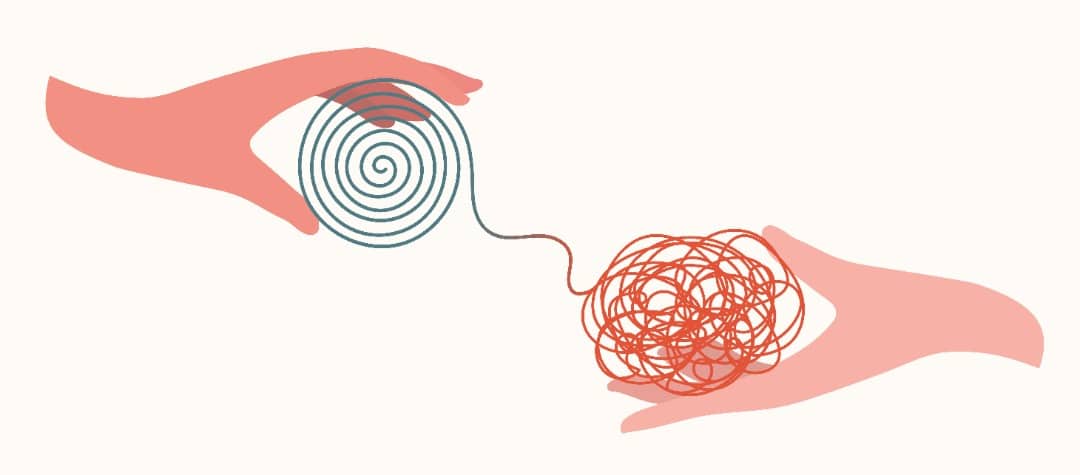Treatments for anxiety are constantly being studied and developed. New clinical approaches focus on long-term ways of helping individuals with anxiety decrease their unproductive thoughts and behaviors as well as control their overwhelming emotions. One of these approaches — dialectical behavior therapy (DBT) — has elicited positive results and responses. But what is DBT? And how does it effectively combat anxiety? Read on as we dissect the many benefits of DBT.
What Is Anxiety?
Anxiety is characterized by angst, nervousness, fear, worry, and distress, and a small amount can be a normal response to stress and is beneficial in certain circumstances. However, these feelings can become extreme and challenging to control, negatively affecting your day-to-day life.
If you have an anxiety disorder, you’ll likely experience feelings of panic, fear, and worry daily. It may lead you to avoid social settings or situations that trigger these fears, and symptoms can sometimes extend from childhood into adulthood. Some common anxiety disorders include:
- Generalized anxiety disorder
- Social anxiety disorder
- Separation anxiety disorder
- Phobia-related disorders
- Panic disorder
What Is Dialectical Behavior Therapy?
Dialectical behavior therapy (DBT) helps teach individuals skills and different ways to cope with and manage emotions and impulses associated with various mental health disorders, including anxiety. While based on cognitive behavioral therapy (CBT), it was originally developed to help treat borderline personality disorder (BPD) but has become a treatment option for substance use disorder, anxiety, and depression. In addition, DBT can help treat:
- Suicidal behaviors
- Post-traumatic stress disorder (PTSD)
- Eating disorders
- Self-harm
Developed in the 1970s by Dr. Marsha Linehan, DBT helps individuals regulate their emotions, foster more successful interpersonal relationships, enhance their distress tolerance, and cultivate greater mindfulness of their thoughts, feelings, and environment. DBT also allows patients to take steps to change their lives and avoid unproductive behaviors.
The Different DBT Modules
Because DBT incorporates many of the most common evidence-based coping skills into one treatment plan, clients experiencing a wide range of anxiety symptoms can be effectively treated. It’s also cognitive-based, support-oriented, and collaborative, meaning that DBT helps individuals address the major sources of stress that cause anxiety. DBT also focuses on the following four modules that teach clients how to incorporate DBT skills into their everyday lives.
Mindfulness
By improving mindfulness skills, DBT enables clients to become more self-aware and rational in situations that affect their environment, helping them understand the nuances of their reality and filter out negative thoughts and stimuli.
Emotional Regulation
DBT also helps pare down extreme emotional responses by allowing patients to understand their emotional triggers and identify better stress management methods.
Distress Tolerance
Some situations are unavoidable, and in these cases, DBT helps clients practice coping methods that prevent emotional flare-ups and negative thoughts that cause anxiety.
Interpersonal Effectiveness
In this module, participants learn how to interact with others in everyday social situations. If you struggle to say no or feel uncomfortable with social obligations, this module helps you recognize the importance of healthy and respectful responses and how to implement them.
Clinically Excellent, Compassionate Treatment for Anxiety Disorders
According to the National Institute of Mental Health (NIMH), anxiety disorders affect about 40 million adults each year. If you’re struggling with anxiety, Lifeskills South Florida is here for you. Our anxiety treatment programs, which incorporate DBT, are designed based on each client’s needs, ensuring they get the care needed for long-term support and healing. Contact Lifeskills South Florida today if you or someone you know is struggling to overcome anxiety.




